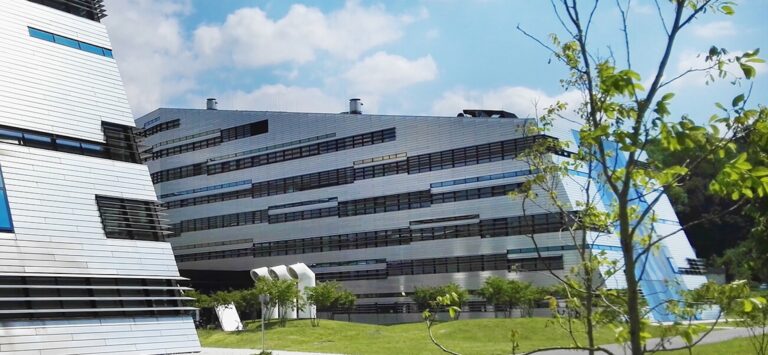Consortium
Slovak University of Technology in Bratislava
The STU research team has extensive experience in multi-physics and system simulations, particularly in fields like automotive and e-mobility. Their current focus is on energy storage solutions for sustainable mobility, though digital twinning is a newer area of expertise, which the FreeTwinEV project aims to strengthen.
Two key teams at STU will collaborate on FreeTwinEV: the Institute of Applied Informatics, Automation, and Mechatronics (MTF STU) and the Institute of Automotive Mechatronics (FEI STU), where the researchers are engaged in detailed and system modelling. In detailed modelling, emphasis is placed on detailed multiphysics simulations, such as coupling thermal, mechanical, electrical, and flow fields, using tools like ANSYS Multiphysics, ANSYS CFX, ANSYS Fluent, and in-house FEM software. They also have expertise in system modeling using Matlab and Simulink for optimization and management.
The second team at MTF STU in Trnava specializes in applying numerical methods and simulations to processes like welding, forming, heat treatment, and casting. Their work focuses on thermal management, fluid dynamics, structural integrity, and rapid solidification of metallic melts, using high-energy heat sources like lasers and electron beams. They are also involved in integrating mechatronic principles into hybrid technological processes that combine machining or welding with ultrasound and laser effects to enhance product quality and efficiency.
University of Twente
UTWENTE is a leading university in Western Europe, known for its high-level battery research through the Centre for Advanced Battery Technology. The university excels at integrating technology, science, and engineering with social sciences to address real-world challenges. In the FreeTwinEV project, UTWENTE collaborates with STU in knowledge exchange on battery systems engineering, digital twinning, battery electronics, and BMS systems.
UTWENTE’s power electronics and EMC group brings expertise in advanced battery characterization and next-gen BMS development, while the Systems Engineering and Multidisciplinary Design (SEMD) group contributes to digital twin designs and systems engineering. Their work spans electric mobility, energy transition, and system-based digital twins.
Cooperation with UTWENTE is two-fold. Firstly, as a research partner, they will contribute to the knowledge exchange on the topics of Model-Based systems engineering, System-based Digital Twins design, Battery electronics, and Power electronics technologies. In addition, the creation of a novel framework for battery digital twin with bidirectional feedback will enable modelling improvements, transcending the current state-of-the-art in battery electronics. Secondly, as a leading educational institution, UTWENTE will contribute to the knowledge exchange on the topic of innovation in the education process, including their experience in topics of Innovative Learning Environments.
Linz Center of Mechatronics
LCM has extensive experience in multi-domain digital twinning of mechatronic systems, covering electric drives, hydraulic systems, mechanical modeling, particle flow, and thermodynamics. They are experts in Functional Mock-up Units (FMUs), which allow model exchange across diverse domains using the Functional Mock-up Interface (FMI) standard. LCM’s contributions will help expand the research team’s tools for multi-physics system simulation and optimization, utilizing the SyMSpace environment. SyMSpace tackles complex product development challenges by optimizing multiple target variables, identifying Pareto-optimal solutions where improvements in one area may affect others. It uses genetic algorithms to run thousands of simulations with different parameters, calculating the best possible outcomes.
LCM’s modular approach in SyMSpace integrates third-party software, enabling automated workflows for tasks like CAD model creation, FE simulations, and data handling. Additionally, LCM’s experience with technology transfer and industry collaboration will boost the technology readiness level of future research activities.
ADDSEN
ADDSEN is a respected R&I management company with over 15 years of experience in preparing and implementing Framework Programme projects. They have a strong knowledge base and a network of proven EU partners. ADDSEN typically assists scientific teams in realizing their potential. Since 2021, they have been collaborating with STU on internal research management processes, and the FreeTwinEV project will elevate this partnership by focusing on internationalization and capacity building for Horizon Europe participation.
In FreeTwinEV, ADDSEN will provide hands-on training, guidelines, and handbooks to support efficient international project preparation and implementation. STU will benefit from ADDSEN’s expertise, including the experience of two ADDSEN employees as former NCPs for Legal and financial issues, EIC and Security.
Specific skills of ADDSEN for the project:
- Project writing, strategic assessment, and preparation.
- Mentoring academia, entrepreneurs, and researchers on high-quality project proposals for Horizon 2020/Horizon Europe.
- Facilitating knowledge and technology transfer between academia and business. Supporting product and process innovation through collaboration with Slovak universities, enhancing technology transfer and internationalization.
- Boosting visibility abroad by promoting research, matching partners, and assisting in international cooperation and dissemination activities.
- Providing technical and administrative project management to ensure timely, high-quality results.






